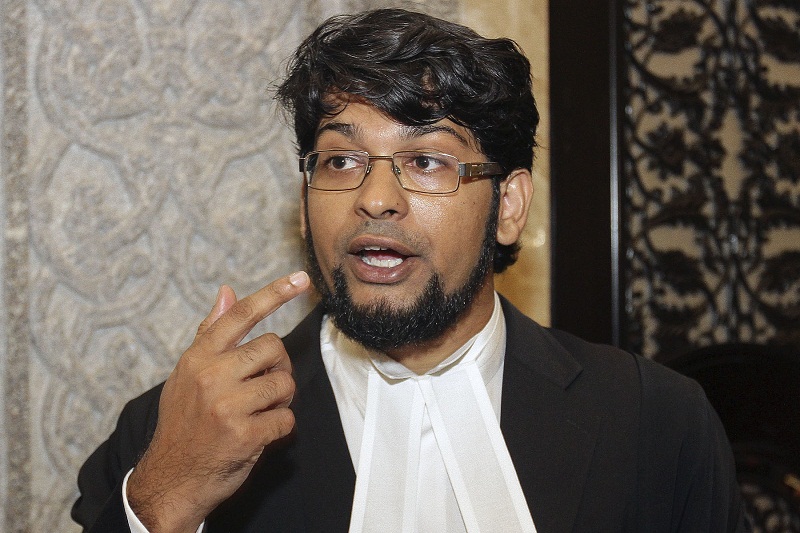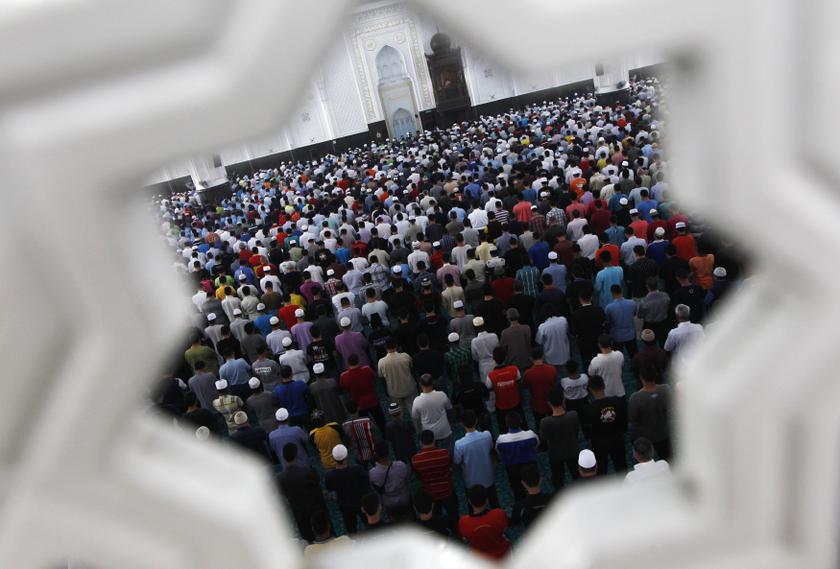By Zurairi AR | Malay Mail

Despite her name, Rosliza Ibrahim is a Buddhist. She was born 35 years ago to a Buddhist mother, who raised her as a Buddhist, and continues to practise Buddhism today.
Yet, the state religious authorities in Selangor, where she currently resides, regard her as a Muslim and subject to Shariah law because she was born to a Muslim father, although out of wedlock.
“Her Constitutional right to religious freedom and disposition of property are all adversely affected. She cannot go to the Shariah court as, by law, she is not even a Muslim in the first place. Thus there is no question of leaving Islam.
“She won’t be able to get married to a person of her choice,” Rosliza’s lawyer, Aston Paiva, told Malay Mail Online yesterday.
Like her name, Rosliza inherited her religious status from her father. But according to her, her parents were never married, while her late mother never even converted to Islam.
“It’s about application of state Islamic law on an illegitimate child born to a Buddhist mother. Selangor says her father is a Muslim and that’s that,” Aston said.
In the Court of Appeal today, Rosliza contends that under English common law and substantive Islamic law, an illegitimate child’s natural father has no rights over the child, and therefore her religion should follow her mother’s wishes.
The appellant, who works in the pharmaceutical industry, had last year filed a summons in a Shah Alam High Court, seeking a legal declaration that Islamic laws enacted by Selangor do not apply to her and that Shariah courts do not have jurisdiction over her.
She had provided evidence from Selangor and Federal Territories religious authorities that both she and her mother had never converted into Islam, and there was no record from both authorities that her parents had a Muslim marriage.
Her mother had also provided a statutory declaration confirming that she had never married the appellant’s father, on October 2008, prior to her death on February 2009 and the filing of the case at Shah Alam High Court.

Despite that, the High Court rejected the summons in March this year, speculating that her parents could have entered a Muslim marriage in any other state in Malaysia, or even outside the country.
“The High Court did not request for evidence of this from the appellant during the hearing. She was not given an opportunity to be heard on this,” Aston said.
In today’s hearing against the Selangor state government, the appellant will ask for her declaration to be allowed, or for the High Court to resolve their speculation.
“A failure by the Malaysian courts to conclusively determine this dispute would affirm that the religion of Islam can be imposed on the Buddhist appellant against her will; violating guaranteed Constitutional rights and human rights in Malaysia,” Aston explained.
Malaysia regularly grapples with long-drawn cases of unilateral conversions into Islam, with minister in charge of Islamic affairs Datuk Seri Jamil Khir Baharom insisting in May that such conversions were lawful and guaranteed under the Federal Constitution, even as the Cabinet is seeking ways to address the matter.
Buddhists make up 19.8 per cent of Malaysians based on the latest census in 2010, the biggest religious minority in the Muslim majority country.



